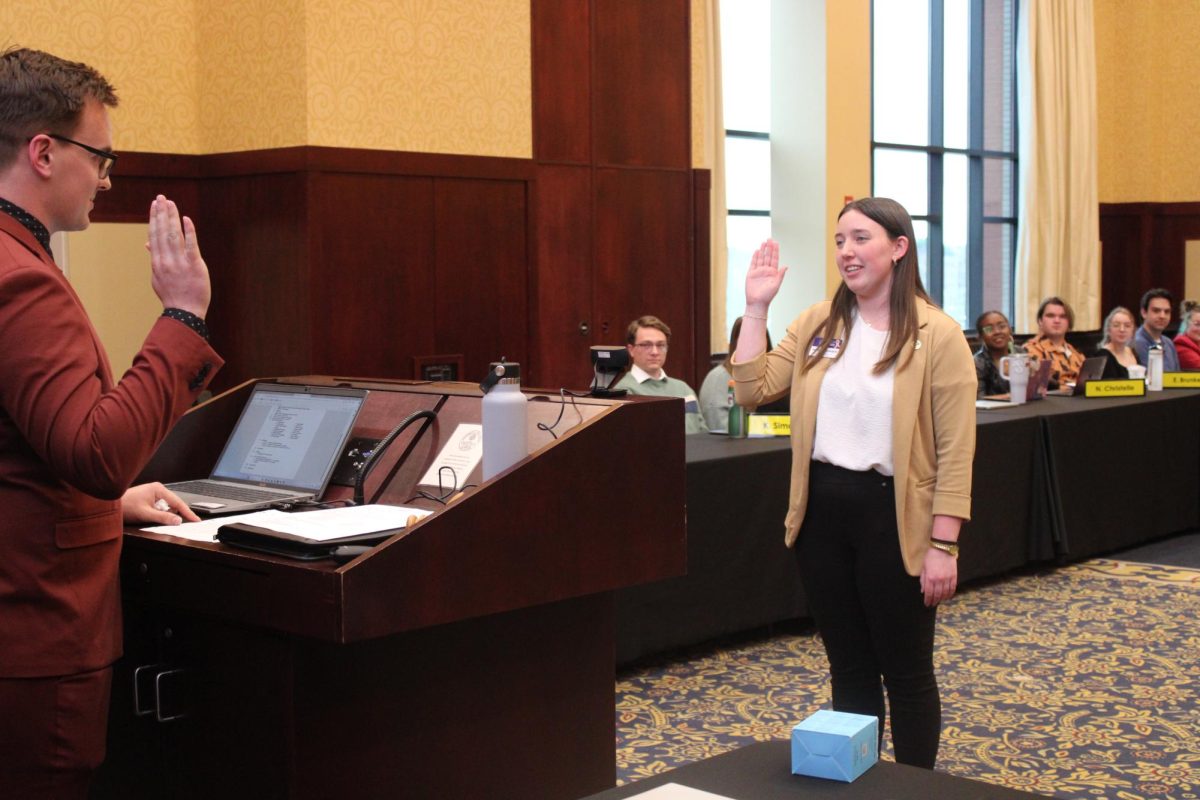| Check out UWEC Counseling Service’s website |
Following the suicide of a UW-Eau Claire senior last month, administrators and counselors are encouraging any student who may be depressed or suicidal to seek immediate help.
Jesse Engelhardt, a business administration major who lived off campus, committed suicide at his Eau Claire home Feb. 3. Eau Claire police responded, but the police report was unavailable during the weekend.
The Spectator initially was not informed of Engehardt’s death.
Engelhardt didn’t get in touch with the university regarding any depression or suicidal thoughts, Associate Dean of Students Bob Shaw said.
“Our deepest regret is that we didn’t have an opportunity to get in contact with him,” Shaw said. “He didn’t go to anyone for help.”
Anyone can get depressed, Shaw said, and students who need help can take advantage of Eau Claire’s free and confidential counseling services.
Counseling Services Director P.J. Kennedy also encouraged students who may be depressed or suicidal to seek help.
Counseling Services saw 247 students for depression last year, Kennedy said. This number has increased every year during the past decade, but that doesn’t necessarily mean more students are depressed, he said. The increase also could be due to more social acceptability of depression.
“Depression is the common cold of psychology,” he said. “Statistically, we are at risk.”
Kennedy said about 4 to 5 percent of college students are depressed at any particular time, compared with 13 to 20 percent of the general population.
Hopelessness and impulsivity, particularly in college students, are two of the greatest predictors of suicide. Therefore, if someone can intervene with the suicidal person, diminishing the impulsivity, he or she can become non-suicidal.
Symptoms of depression can include either a depressed or irritable mood, Kennedy said. Many people may not recognize irritability as a sign that a friend is depressed, but it is a common sign, particularly among men.
Other signs of depression include a loss of or diminished interest in the things a person normally finds enjoyable and in his or her daily activities.
A significant weight change — gain or loss — of greater than 5 percent also can signal depression. Sleep disturbance is common among depressed individuals and can include both insomnia and hypersomnia.
In addition, obvious physical anxiety or, on the other end of the spectrum, slowed psychomotor activity, is indicative of depression. Fatigue, loss of energy and feelings of worthlessness or excessive guilt also are common in depressed individuals, Kennedy said.
Depressed people may also experience a loss of concentration and increased indecisiveness, and may have thoughts of suicide or death, in general.
Depression, despite these signs, is not always immediately evident, Kennedy said.
Depressed students may be reluctant to go to counseling, and no one can force them to get help. The suggestion itself, however, may be the push a student needs to go to counseling. Kennedy also suggested offering to walk to Counseling Services with a friend who may be depressed, because simply going with him or her might make the trip easier.
Risk factors for becoming depressed include any loss – the loss of a relationship or the death of someone close, for example – social isolation and alcohol abuse.
“If you’re feeling badly, stay away from alcohol and chemicals,” Shaw said. “A good percentage of suicides end up being alcohol-related. Alcohol is a powerful depressant.”






